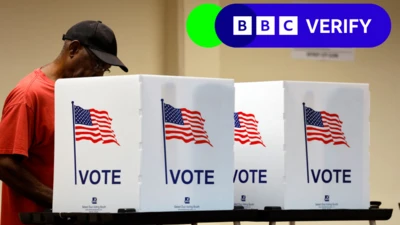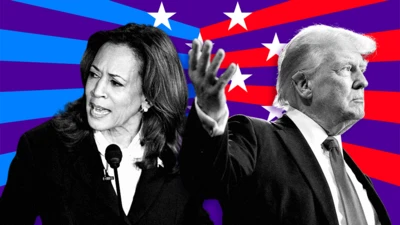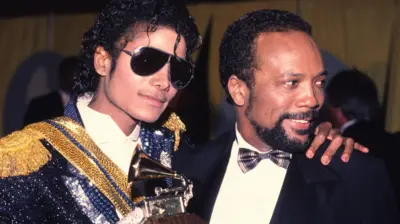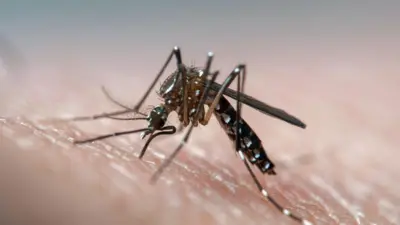We've updated our Privacy and Cookies Policy
We've made some important changes to our Privacy and Cookies Policy and we want you to know what this means for you and your data.
Stalin's daughter Lana Peters dies in US of cancer
The only daughter of Soviet dictator Josef Stalin has died in the US at the age of 85.
Svetlana Alliluyeva, also known as Lana Peters, died of colon cancer at a care home in the state of Wisconsin last Tuesday, officials say.
Her defection from the Soviet Union in 1967 was a propaganda coup for the US. She wrote four books, including two best-selling memoirs.
But she said she could not escape the shadow of her father.
'Little sparrow'
When Peters arrived in the US, she said she had come for the "self-expression that has been denied me for so long in Russia".
She said her defection was partly motivated by the Soviet authorities' poor treatment of Brajesh Singh, an Indian communist whom she had a relationship with.
Although she later referred to Singh as her husband, the two were never allowed to marry.
Peters went to India in 1966 to spread Singh's ashes, but instead of returning to the Soviet Union she walked into the US embassy to seek political asylum.
She burned her passport, denouncing communism and her father, whom she called "a moral and spiritual monster".
She graduated from Moscow University in 1949, initially working as a teacher and translator.
Peters was married three times and had two daughters and a son.
Her first memoir, Twenty Letters to a Friend, was published in 1967 and made more than $2.5m (┬Ż1.6m).
She took the name Lana Peters upon marrying architect William Wesley Peters in the US.
The couple settled in central Wisconsin and had a daughter, Olga, before divorcing in 1973.
She returned to the Soviet Union briefly in the 1980s, renouncing the US, but left again after feuding with relatives.
In an interview in 1990 with Britain's Independent newspaper, Peters said she had no money and was living with Olga in a rented house.
Stalin, who died in 1953, is deemed responsible for the deaths of millions of his countrymen.
Peters - who was six years old when her mother took her own life - was once close to her father, who called her his "little sparrow". But they grew distant in his final years.
He sent her first love, a Jewish filmmaker, to Siberia.
Her brother, Jacob, died in a Nazi concentration camp during World War II when her father refused to exchange him for a German general, and her other brother, Vasili, died an alcoholic, aged 40.
Lana Peters bemoaned the constant association with her father.
"People say, 'Stalin's daughter, Stalin's daughter,' meaning I'm supposed to walk around with a rifle and shoot the Americans," she once said.
"Or they say, 'No, she came here. She is an American citizen.' That means I'm with a bomb against the others.
"No, I'm neither one. I'm somewhere in between."
While Peters denounced her father's regime, she also blamed other communist party leaders for the Soviet Union's policy of sending millions to labour camps.
Speaking to the 91╚╚▒¼ in 1990, Peters said that life in the USSR became much easier for everyone, herself included, after Nikita Khrushchev came to power.
She revealed that Khrushchev showed her his speech to the 20th party congress in advance, so she wouldn't be shocked. In this address, three years after Stalin's death, Khrushchev denounced his predecessor as a brutal despot.
Interviewed in Cambridge, Peters said "When my mother left us, he [Stalin] was left completely alone. And I think what came next, in the late 30s and after the war in the 40s - I think that was a result of his complete loneliness on top of the world. Nobody would argue with him anymore."
Top Stories
More to explore
Most read
Content is not available








